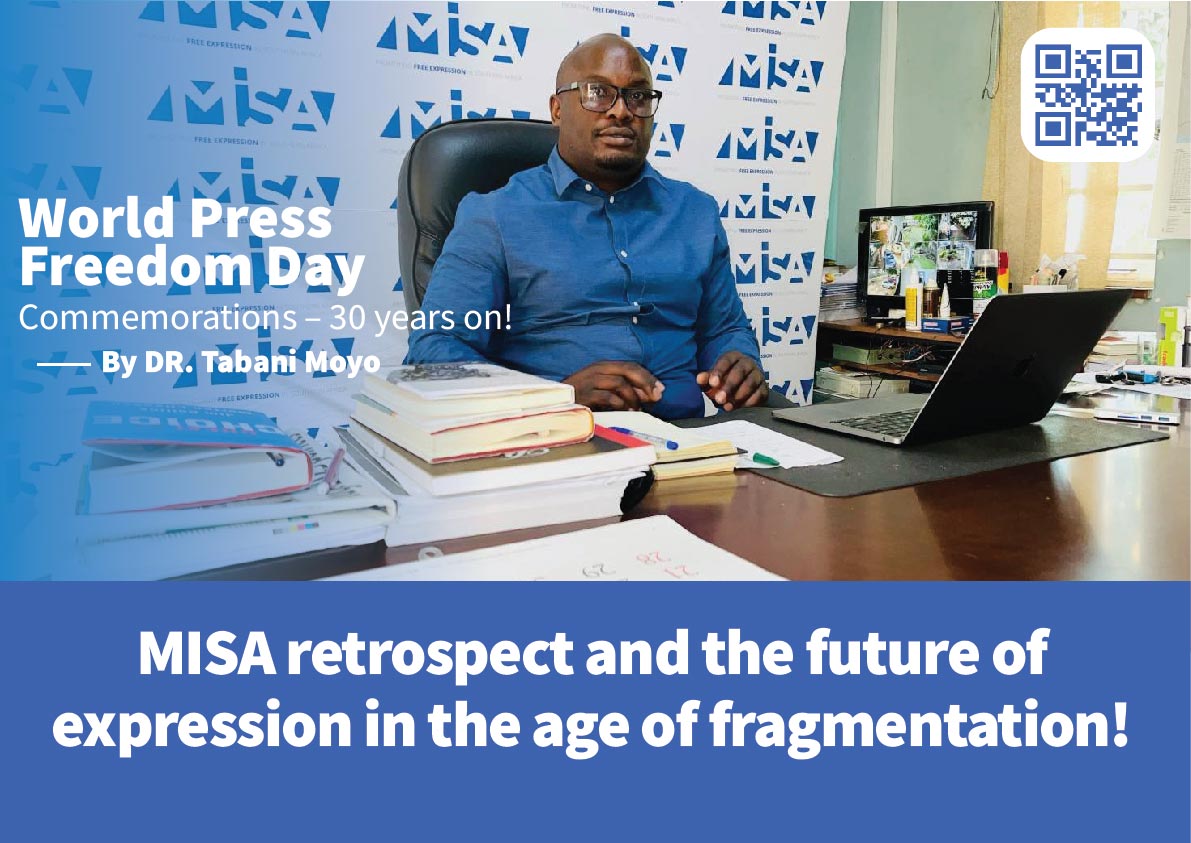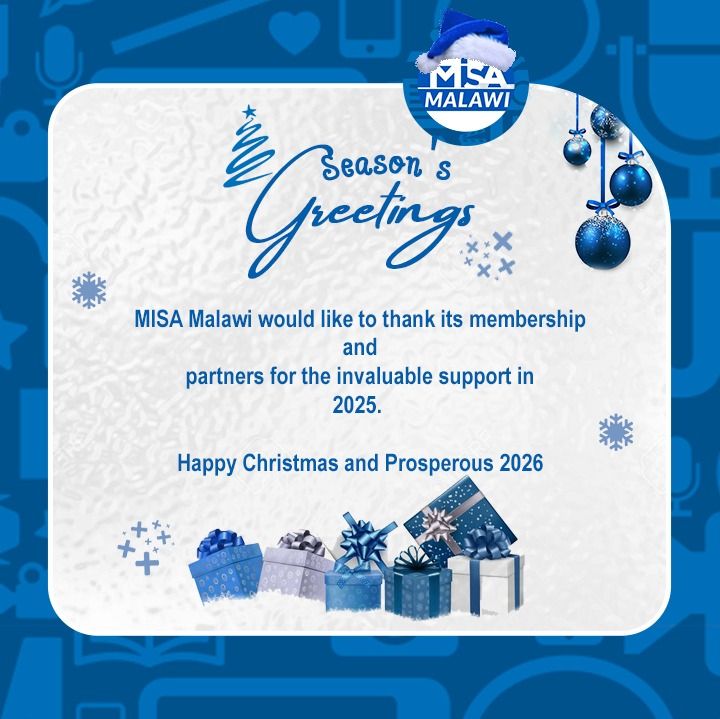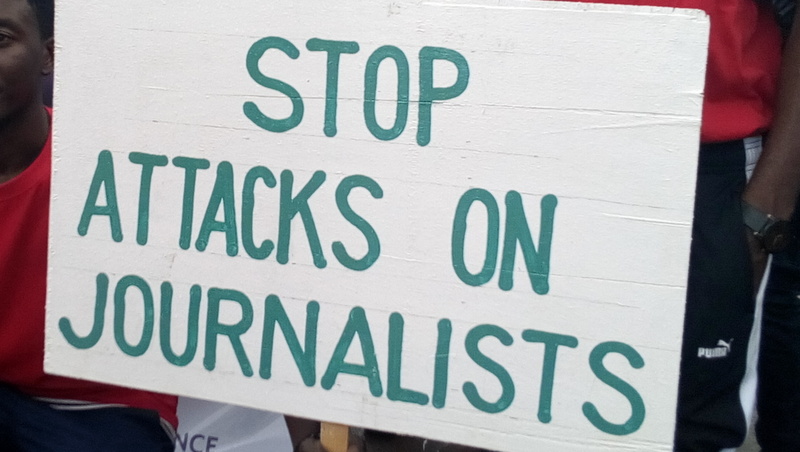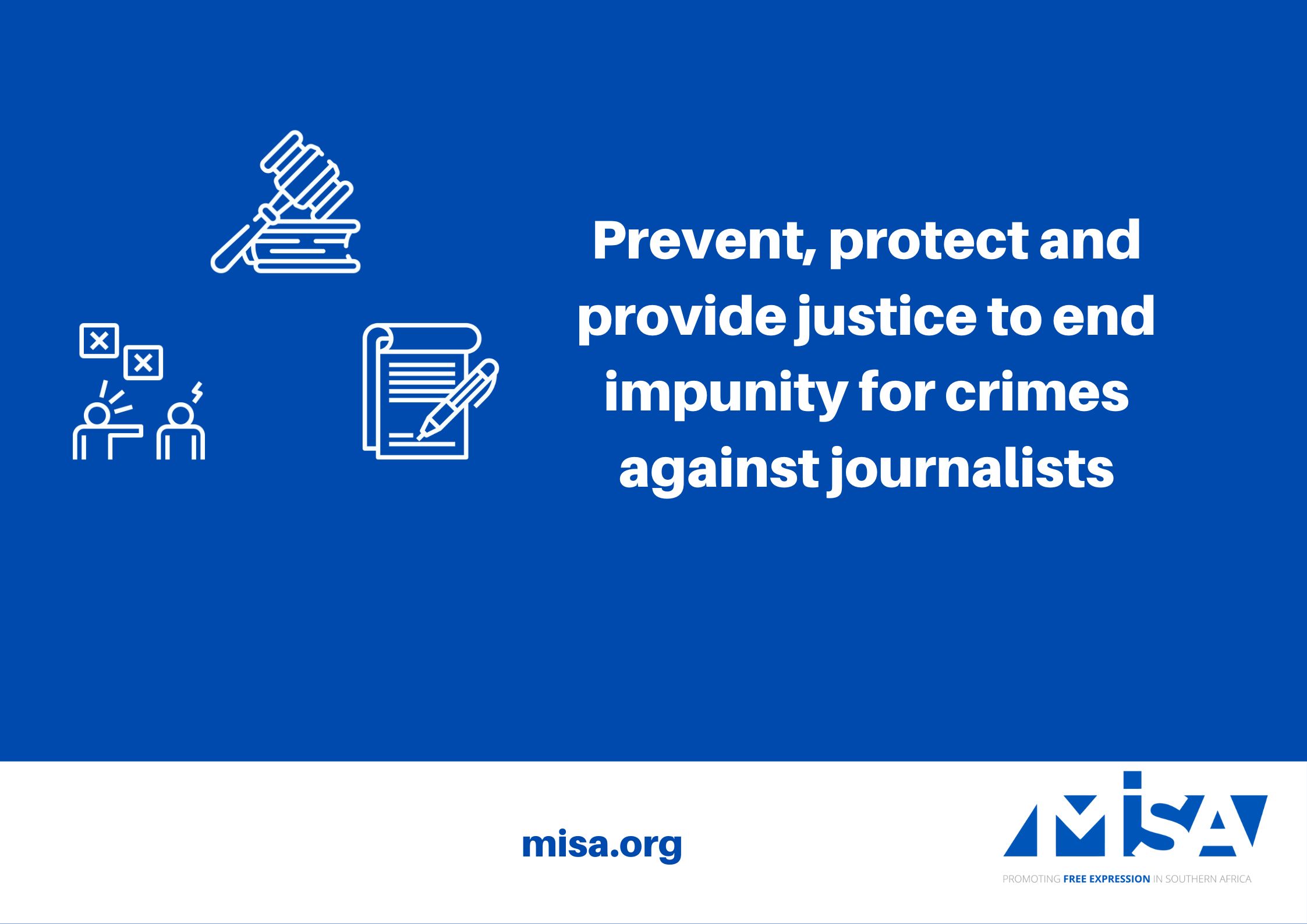MISA retrospect and the future of expression in the age of fragmentation!
By Tabani Moyo
This year marks significant milestones on two fronts as we commemorate the 30th anniversary of World Press Freedom Day (WPFD) and the 75th anniversary of the Universal Declaration of Human Rights (UDHR).
The global theme for this year’s commemorations, Shaping a Future of Rights: Freedom of expression as a driver for all other human rights, aptly captures the centrality of expression in the quest for the enjoyment of the entire human rights architecture.
In this write-up, I reflect on the journey of MISA, which by its very nature is a creature of the UN resolutions and declarations, which has influenced and, by extension, been influenced by the fast-paced changes that took place in the past three decades.
media environment
The year 2023 has seen the bulk of the southern African countries making positive steps in the rankings of the Reporters Without Borders Index. Of the 15 countries that were ranked, six slid down the ladder of rankings. One of the six that had a negative movement is Namibia dropping from position 18 to 22 yet maintaining the number one position in Africa.
The great leap in the positive direction was that of Botswana which moved 30 points upwards from number 95 in 2022 to 65 in 2023. This was followed by Lesotho, which sprung from 88 in 2022 to 67 in 2023, a 21-point gain.
Encouragingly, three of the four countries scheduled for elections in 2023 improved their standings in 2023 compared to 2022. Eswatini, the Democratic Republic of Congo and Zimbabwe improved by 20, 1 and 11 points, respectively.
In contrast, Madagascar fell from 98 to 101 out of the 180 countries.
Below is an illustration of the countries’ comparative rankings from 2022 to 2023:

Windhoek Declaration and the formative stages
As we introspect on the impact of 30 successive years commemorating the WPFD, it became apparent that Africa has been instrumental in contributing to the evolution of the rights agenda, instructively and specifically the evolution of the free press, expression, and expression, in the 75 years of the existence of the UDHR.
In 1991, the World descended on Namibia with media practitioners, academics, activists, and content creators crafting what became ‘Africa’s gift to the world’ – the Windhoek Declaration on Promoting Independent and Pluralistic Media.
This Declaration has, over the years, evolved into a pivotal instrument in the development and evolution of Africa’s media and expression landscape. In fact, it is one of the progressive instruments whose footprints can be traced back to the peoples of Africa as it shaped how the United Nations was to structure WPFD as we know it today.
This historic document also gave birth to other instruments in the form of the African Charter on Broadcasting, the Declaration of Principles on Freedom of Expression and Access to Information in Africa.
It also anchored and spurred African media practitioners, academics and activists to the next frontier in lobbying for the International Day for Universal Access to Information which is commemorated annually on the UN calendar on the 28th of September.
In doing so, Africa claimed her rightful position in connecting the dots and cohesively shaping the international media agenda, as aptly captured by former South African President Thabo Mbeki when he asserted:
“Africans have the right to think!”
This is why the Declaration is critical to the Media Institute of Southern Africa (MISA) as it influenced the organisation’s formation, so to speak, as MISA became one of the vehicles that would push, in certain circumstances, forcefully, the objectives of the Declaration.
In this regard, MISA has made it a point to commemorate the Windhoek Declaration at the turn of each five years to reflect and maintain the continental media, freedom of expression and access to information agenda on the global map.
In 2021, I had the privilege of a lifetime in moderating conversations on the Windhoek Declaration @30 in Namibia. This led to the adoption of the successor Declaration, Windoek +30 – Information as a public good. This is a reminder of the pathways upon which the world should reflect and remain alive to in ensuring that information in its most accurate state remains at the centre of informed decision-making.
It is from this Declaration that UNESCO is developing a guideline of which the big tech companies should abide with in the quest to ensure that information, in the age of information disorders, remains sacrosanct and instructive in decision-making.
rethinking the future – Windhoek +30
Mainstreaming the intersectionality of information as a public good, and expression as an enabler of the enjoyment of other rights, is pivotal today than ever before, especially as we commemorate the 75th anniversary of the UDHR.
As we cast our eyes far into the future – 10 years ahead – let’s do so with the aim to address the complexities borne of the ever-changing contexts in the realm of policy; media economics; expression online and offline; mis/ dis-information; safety and security of the media; sustainability of the media, and media capture, among other challenges that are impacting on expression, media freedom, access to information and the broader human rights rubric.
This is due to the confluence of a multiplicity of factors such as the outbreak of
pandemics; endemics, stifling of online expression under the guise of controlling the pandemic by most Southern African countries.
In addition, a lingering and permeating threat exists on the future of the media in the context of the intricate challenges posed by pandemics, climate change, natural disasters, gender mainstreaming and the role of big tech companies vis-à-vis the quest for supporting and defending a resilient media.
Inspired by the spirit that led to the adoption of the ‘African Gift to the World’, there is a need to shape the next phase in defence of expression and broader human rights globally through a lasting process of defining and shaping genuine collaboration and solidarity in the world that is increasingly fragmented.
It is now widely acknowledged that the power balances between global institutions, specifically in the Global North, has resulted in mock charges towards genuine collaboration. This is self-defeatist as it weakens the capacity to defend human rights in the age of fragmentation.
onwards – solidarity and collaboration
Given the strides of the past 30 years and lessons learnt, this tokenism approach to collaboration and solidarity needs to be understood in the broader conversations on decoloniality.
Various forceful arguments, and with validation in most instances, have been advanced that there is a need to break the endless cycle that undermines organic collaborations, wherein the strong railroad the weak into an unevenly yoked relationship.
Given the nature of attacks on expression 30 years on, there is a need to attend to these uncomfortable facts to better prepare the actors for a more responsive, effective, and efficient response to these enormous challenges.
In trying to set an example for the world, more than 24 organisations dealing with freedom of expression, access to information, media freedom, technology and privacy converged in Southern Africa and formed the Spaces of Solidarity Forum (#SoS). This is a space where organisations pivot on each other’s strengths to respond to the changing nature of threats to expression and set priority areas for each year.
Ten (10) countries are headed for elections in the next two years in Southern Africa namely: Botswana, Namibia, Malawi, Mozambique, Mauritius, Democratic Republic of Congo, South Africa, Eswatini, Madagascar and Zimbabwe.
This brings to the core issues concerning free expression such as internet access, journalists’ safety and security and the state of civic space. Small and organic institutions in the region will bear the brunt of such complexities and will do with genuine collaborations led by local organisations, with the global organisations taking a cue from the local ones.
Such a collaborative framework will minimise risk for the local players, increase skills and knowledge transfer levels on a sustainable basis that feeds into building organic solidarity movements to continue pushing back attacks on expression.
On the 22nd of April 2018, I was among a small group of Africans in the People’s Republic of Mauritania which worked together with the then African Commission on Human and Peoples Rights (ACHPR) Special Rapporteur on Freedom of Expression and Access to Information, Commissioner Lawrence Murugu Mute, to review the final version of the Revised Declaration of Principles on Freedom of Expression and Access to Information in Africa.
The room had a healthy representation of the continent, and we achieved the objective, which led to the African Union adopting the current soft law. This happens when small institutions and somewhat marginalised communities are given the scope and space to contribute meaningfully to issues that profoundly impact global developmental agendas. As we commemorate the 30th anniversary of the WPFD, we stand in solidarity with the journalists who lost their lives in the line of duty! And equally, with the horde of media houses that were bombed and shut down, respectively.
Multitudes of journalists have been harassed, assaulted, and arrested, yet they continue to report in the line of fire! We stand in solidarity with the freedom of expression activists who continue to defend expression in Southern Africa, Africa, and globally under extremely difficult circumstances!
We salute the resolute spirit of the peoples of Africa that continue to push back internet shutdowns and throttling during protests and high-stake national processes, such as elections!
Dr Tabani Moyo doubles as the Regional Director for MISA Regional Secretariat & National Director for MISA Zimbabwe. He can be contacted at tabani@misa.org or visit www.misa.org











